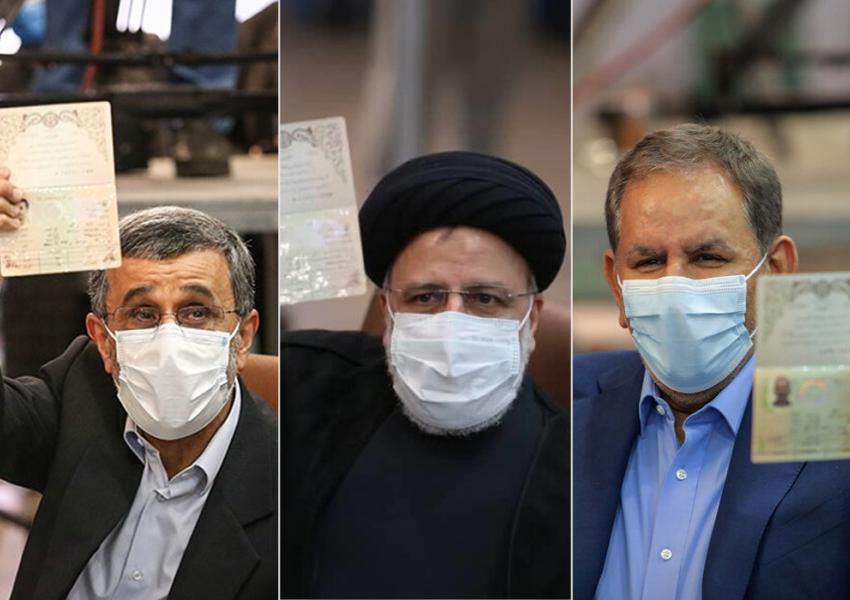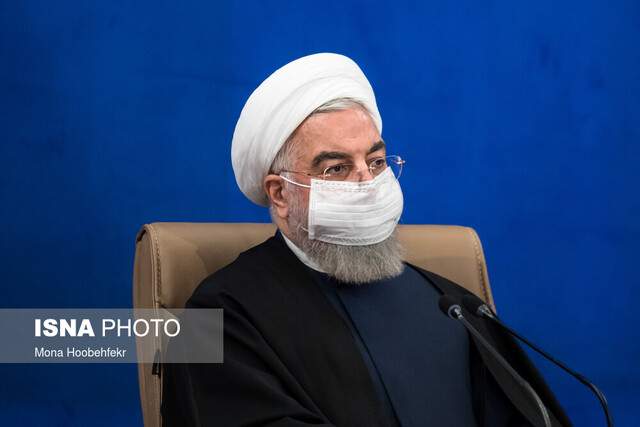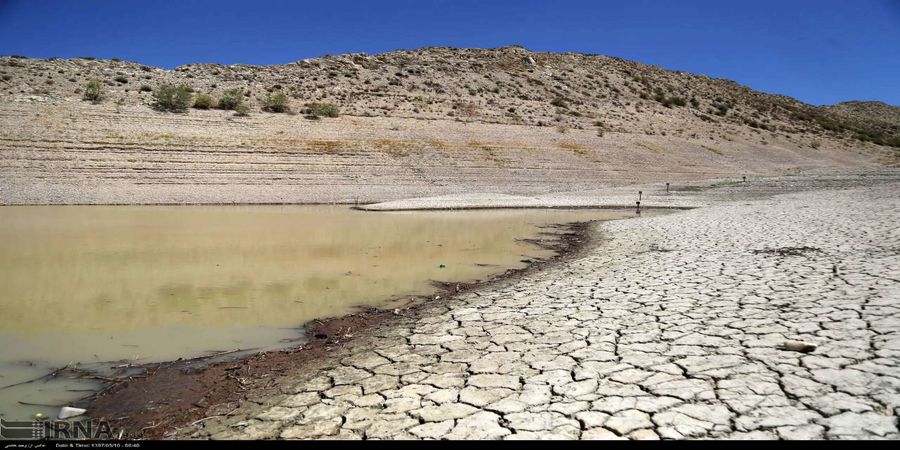
Do Not Lose the Opportunity!
With coronavirus taking hundreds of victims every day, an editorial published by eight newspapers including Etemad criticizes the slow vaccination process in the country, warning against losing the opportunity for countering this pandemic. A new government is going to take office in Iran and the process of the transition of power might have a serious impact on combating the virus.
Not a long time ago, newspapers avoided using the word “crisis” in their headlines lest they made people worried. But now it has become one of the most commonly used words in newspapers as the country is facing countless crises.
Amidst all these crises that the country is grappling with, the most important issue these days is that providing and distributing coronavirus vaccines must be the first priority of the establishment. For months, coronavirus has derailed ordinary life all over the world, it has taken many lives and grounded many economies, and it has turned into a serious threat against individuals, communities and future generations.
This is one of the rare cases impacting the entire world and its social, economic, political, health and mental outcomes are not clear yet. In the early months of the pandemic, even the most advanced countries were helpless against the coronavirus. In the initial months of the crisis, quarantine was the only solution. But with the production and distribution of the vaccine throughout the world, quarantines have been lifted and ordinary life has somehow resumed.
There is high competition in the world for providing vaccines, so that with the rapid vaccination of the population, ordinary life can be resumed.
There are two serious concerns regarding the Iranian people’s health: first, the conflicting news and information about importing vaccines indicates confusion in this regard. Second, as we get closer to the presidential election, a new government is going to take office and the transition process might seriously impact the country’s ability to confront the coronavirus.
It must be warned that any delay in providing and distributing vaccines will result in losing the opportunity to resume ordinary life. That is why the president must form a national committee to oversee and facilitate providing and distributing vaccines.
“Reformist” or “Principlist”?
With the beginning of the presidential race in Iran, the Guardian Council has started the vetting process to announce those who qualify to become presidential candidates. The editorial of Arman Melli explains why the majority of the Iranian people who usually voted for the “reformists” are not going to participate in this presidential election.
Presidential candidates registered in a cheerful atmosphere, making everybody temporarily laugh and forget about their own sorrows and afflictions due to coronavirus, unemployment and poverty.
Most of the people found it entertaining, because the former and current officials had all felt duty bound to run for president and save the country from its terrible conditions. Some people search for a savior in the candidates, while some have decided not to take part in the election. Candidates with different backgrounds and proclivities have decided to run for president.
540 men and 40 women have nominated themselves. One wonders why so many people have decided to do so. Is it in pursuit of their dreams, or is it because they feel that as officials, they haven’t performed well and it is now their duty to fix the situation? If so, what worldview and strategy do they have for resolving these issues? It seems that they haven’t thought about this issue, or else they wouldn’t dare to nominate themselves.
There are two major political trends in the country: “reformist” and hardline “principlist.” Currently, the “principlists” are in charge of all military, political, economic and propaganda power, while the “reformists” are not in charge of any legal institutions. The Iranian people have always elected the “reformists” because they have avoided extremism in domestic and foreign policies. But during the past 40 years, whenever people have rushed to the ballot boxes to vote for the “reformist” candidates, the “principlists” have created obstacles for those “reformists” who were elected.
That is why the majority of the Iranian people have reached the conclusion not to participate in the upcoming presidential election. The leaders of the “principlists” have not realized the gravity of the situation yet. They are happy that a hardline “principlist” president is going to take office.
Inflation and the Next Government
With a new Iranian government taking office in the coming months, the editorial of Ebtekar explains why the inflation rate in Iran will keep rising, adding more pressure to people’s lives.
For four decades, Iran’s economy has suffered from inflation every year – a curse that the country’s economy has always been grappling with. And the government’s policies have only exacerbated Iran’s inflationary spiral. In its simplest definition, inflation is an increase in prices. Each year, respective organizations measure the prices of common goods and announce the inflation level. The numbers show the amount of economic pressure on the people, indicating the undesirable conditions in society.
While two thirds of the world’s countries, including many countries in the Middle East, have single digit inflation, Iran has suffered from double digit inflation for years and hasn’t been able to resolve the issue. How much longer should the Iranian people desperately hope for economic stability? What are the ways to counter inflation in other countries?
It is a truth universally acknowledged that having a positive economic outlook is one of the significant factors in creating economic stability. In so far as a country doesn’t have positive prospects and its officials cannot gain the public trust, we will systematically experience an increase in prices. We can see double digit inflation in countries like Turkey and Venezuela whose polices are close to Iran.
With the next government taking office in Iran, this issue will become more concerning. Due to the expected low turnout in the presidential election, we will see a government with more closed policies and limited relations with other countries in the world. Such governments are against the free market.
The other issue that has impacted Iran’s increasing inflation is that Iranian governments heavily rely on the Central Bank, and officials can pressure it for printing money. This flawed policy was enforced by the Rouhani and Ahmadinejad governments, and the outcome was nothing but adding more pressure on people.
The next Iranian government will not have the skill to control inflation. Unfair distribution of subsidies among people, no positive economic prospects, weak foreign policy, belligerence in the region, lack of government transparency, lack of independence of the Central Bank and lack of public trust will continue to increase inflation in Iran.
The Presidential Election and the “Reformists’” Dilemma
As we are getting closer to the presidential election in Iran, Iranian “reformists” have to make a tough decision: to participate in the election or not. The editorial of Arman Melli, penned by “reformist” academic Sadegh Zibakalam, explains why the social base of the “reformists” is not willing to take part in elections any longer.
With more candidates being nominated to run for president, Iranian “reformists” seem to face a serious challenge. They have realized that their social base which comprises mostly of students, writers, women, etc. are not willing to participate in the presidential election.
The “reformists” have realized that if they participate in the election, their candidate – even if approved by the Guardian Council – will not gain many votes. That is because the majority of the 24 million people who voted for them four years ago have become frustrated as their votes failed to create any substantial change. When going to the ballot boxes creates no change in small and large-scale policies in the country and when all policies are still enforced as before, then people raise the essential question about whether participation in elections can have a real, meaningful impact.
The most basic expectation by those who take part in any election is to see changes if their candidate wins. But the 24 million people who voted for Hassan Rouhani four years ago saw no serious change in the country’s policies. Now people ask themselves: if we go to the ballot boxes and our candidate wins the election, is there any guarantee that there will be any change? If the important economic, international and military policies of the country are supposed to continue as before, then what outcomes will the elections in general and the presidential election in particular have?
Of course, if there are any developments that promise a change in this process and approach, Iranian society will look at the issue of participating in elections with more hope. But the past trends show that this is highly unlikely – almost impossible.

Iran-based Activists Call on Boycotting the Presidential Election for a Peaceful Transition to a Democratic Political System

231 civil and political activists in Iran have published a letter calling upon people to boycott the 2021 presidential election as a “show election” and urging them not to allow the “anti-people political system to continue its existence.”
“Dismissal of Ayatollah Ali Khamenei,” “holding a referendum for the nullification of the Islamic Republic Constitution” and preparing the ground for “holding a free and fair election supervised by impartial organizations such as the UN” are among the demands posed by the signatories.
This letter – entitled “all united for boycotting the June 2021 election and a non-violent transition from the Islamic Republic regime to a popular establishment by the people and for the people” – has been signed by a variety of individuals ranging from religious minorities and ethnicities to the families of the victims of the Iranian government’s acts of repression throughout the years.
The election boycott, according to this letter, aims at a peaceful transition from the Velayat-e Faqih system and acquiring a “democratic, secular constitution based on the Universal Declaration of Human Rights.”
The letter also addresses “Iran’s armed forces,” asking them to join this boycott campaign.
More than 40 known political figures are currently running for Iran’s presidential election, the most prominent among them is judiciary chief Ebrahim Raisi who played a key role in the 1988 mass executions of political prisoners.
In addition to this movement, there are other campaigns in this regard, such as the “I do not vote” campaign which pursues the “active” and “targeted” boycott of the election. Moreover, a number of families of those who have been killed by the Iranian government’s judicial or security forces in prison, on streets or in the air during the past three decades have launched a “no vote” campaign.
Only 27 Percent of Iranians to Participate in the Presidential Election, Says Iran International Poll

A poll exclusively conducted exclusively by Iran International shows that only 27 percent of Iranian people are going to participate in the upcoming presidential election, while the main competition is between judiciary chief Ebrahim Raisi and former president Mahmoud Ahmadinejad. The poll also indicates that the “reformist” candidates are not favored by voters at all.
Out of the respondents to the poll, 55 percent said they won’t participate in the election, 18 percent are hesitant, and only 27 percent are going to vote.
According to the poll, if Ahmadinejad is qualified by the Guardian Council, he will be the main contender against Raisi in the presidential race. The poll shows that 29.4 percent will vote for Ahmadinejad, while 29.6 percent back Raisi.
Mohammad Bagher Ghalibaf and Saeed Mohammad with 4 percent, Foreign Minister Mohammad Javad Zarif with 3 percent, Minister of Information and Communications Technology Azari Jahromi and Saeed Jalili with 1 percent stand next in the list.
Ali Larijani, Mohsen Rezaee, First Vice President Eshaq Jahangiri and Mostafa Tajzadeh are at the bottom of the list with less than 1 percent.
The poll also shows that if the currently undecided voters decide to take part in the election, then Mahmoud Ahmadinejad will be the front runner.
As such, the only way to guarantee Raisi’s electoral victory is for the Guardian Council to disqualify Ahmadinejad, who has announced that in case of being disqualified, he will not participate in the election and won’t back any candidates.
The poll has asked the respondents who they will not vote for under any circumstances. The results show that Eshaq Jahangiri, the main “reformist” candidate, and Zarif scored high in this regard with 30 percent and 18 percent respectively.
The poll respondents were also asked about the current President Hassan Rouhani’s performance. The results show that only 18 percent of the people consider his performance satisfactory, while 80 percent are unhappy with it.
Fifth Wave of Coronavirus in Iran Amid Slow Vaccination Process

While some Iranian provinces are still grappling with the fatal consequences of the fourth wave of COVID-19, authorities have raised the alarm about the fifth wave of this disease. Meanwhile, the slow vaccination process and officials’ lack of planning for handling the crisis have drawn considerable criticism from people.
Spokesman for the National Coronavirus Headquarters Ali Reza Raisi reported 60 cases of coronavirus variants in the southern and eastern provinces such as Bushehr, Khuzestan and Sistan and Balochistan. He also said one case of the Indian variant was identified in West Azerbaijan province. “The least negligence might turn 263 cities – which are currently in orange zone – into red-zone cities,” he noted.
Massoud Mardani, another member of the National Coronavirus Headquarters, said the number of coronavirus patients who need to be hospitalized is still high and has only decreased by nearly 10 percent to 15 percent in comparison to the fourth wave. He also pointed out the daily three-digit death rate might continue until next month.
According to a Hamshahri daily report, Iran’s upcoming presidential election will aggravate the coronavirus crisis as well.
Moreover, an official in Iran’s Health Ministry said 65 percent of those who are over 80 years old have already received the coronavirus vaccine. However, some social media users have published reports and photos showing the lack of organization and planning for the vaccination process as well as the “government’s incompetence” in this regard.
In the midst of this crisis, President Hassan Rouhani addressed those who say top Iranian officials have already been vaccinated, saying: “I honestly tell people that even I as the president have not received the vaccine because it is not my turn yet.” Rouhani added that he did not know of any top official who received the vaccine out of schedule.
Driest Summer in 50 Years Predicts Energy Minister

As a result of the decrease in precipitation, the increase in consumption and use of underground water resources, Iran is faced with a water crisis – mainly because of flawed policies – and it is getting worse year after year.
In this regard, Energy Minister Reza Ardakanian has warned about the shortage of water this summer, calling it the “driest” year in the past 50 years.
Furthermore, Issa Kalantari, head of Iran’s Department of Environment, has slammed large-scale policies on managing water as well as experts in this field. According to Kalantari, “the war over water which has started in the provinces will reach the villages, because nature in Iran has been sacrificed at the altar of large-scale policies, and the country’s experts who have remained silent in this regard must be accountable to history.”
The head of the Department of Environment asserted that 20 billion cubic meters of water are taken from natural resources and underground water annually, and water resources are plundered. As such, he added, in the next 20 years, there will be no sign of agriculture around the Zagros mountains because “we are plundering the water resources.”
Kalantari has strongly criticized the policies that have resulted in plundering and squandering the country’s natural resources, adding that “the country is being destroyed” and the officials during the past 40 years must be held accountable for destroying Iran’s natural resources.
These remarks were made while experts predict a tough summer for Iranian metropolises, warning of the possible rationing of water.
One of the main reasons for this dire forecast was the decrease in precipitation this spring and last winter.
According to Mostafa Fadaeefard, member of the Iranian National Committee of Large Dams, Iran is no longer dealing with a water crisis; it is rather facing “water bankruptcy” now, but the officials do not grasp this situation.
In the wake of the shortage of water and plans for transferring water in recent years, there have been protests and clashes between people and law enforcement agencies in different provinces of the country.
